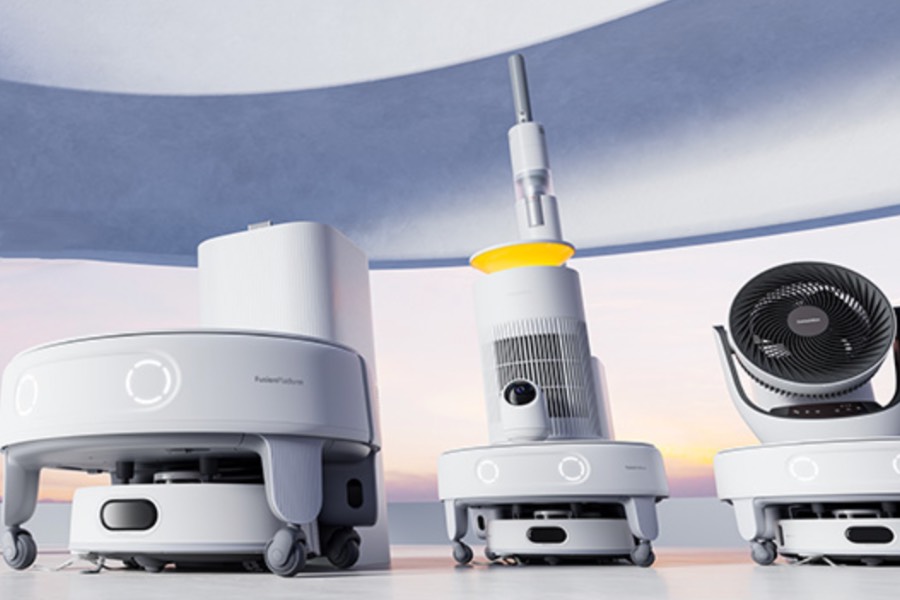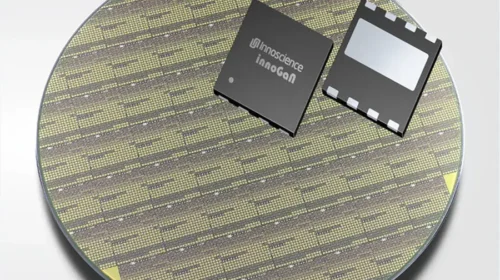Switchbot taps market frenzy for robotic stocks

The maker of smart home-use robots has filed for a Hong Kong IPO, boasting a key elder of China’s high-tech gadget world as a major shareholder and non-executive director
Key Takeaways:
- Switchbot has filed for a Hong Kong IPO, reporting its loss narrowed last year as it posted a second consecutive year of positive adjusted EBITDA
- The maker of smart home-use robots counts Japan as its largest market, supplying nearly 60% of its revenue
By Bai Xinrui
Robotic stocks are on a tear lately, lifted by recent events like a dancing robot performance on China’s widely watch annual Spring Festival Gala TV program, and repeated hype from Jensen Huang, CEO of Nvidia, saying the robot era is drawing near. Piloting into that buzz is smart home-focused Switchbot (Shenzhen) Co. Ltd., which hopes to tap excited investors for cash with its plan for a Hong Kong listing.
The company was hatched in 2015 as the brainchild of two college classmates from the Harbin Institute of Industry, Li Zhichen and Pan Yang, according to its listing document filed earlier this month with the Hong Kong Stock Exchange. It launched the world’s first finger robots in 2017, marking the official debut of the Switchbot brand. It was restructured into a joint stock company in April this year, paving the way for its IPO. Li Zhichen is the company’s largest shareholder with 21.82% of its stock.
The market for smart home-use embodied AI robots has been expanding rapidly as AI technologies continue to advance, opening the way for hardware with increased intelligence and flexibility. According to third-party research cited in Switchbot’s listing document, the market for such products grew from 213.3 billion yuan ($29.71 billion) in 2022 to 257.7 billion yuan in 2024, averaging annual growth of nearly 10%.
The growing demand is being fueled by demographic trends like an increasingly aging global population, more people choosing to live alone and young people looking for the latest trendy smart products to embellish their homes. Such demand is expected to keep the market humming at a similar 10.7% growth annually over the next five years, reaching 428.3 billion yuan in 2029, according to the listing document.
Market leader
Switchbot is the world’s biggest provider of home embodied AI robotic systems, which use a central platform to enable robots to learn by themselves, after which they can acquire human-like capabilities and carry out complex tasks in the home. Last year, the company was the world’s leader in AI home embodied robotics with 11.9% of the market, 2.1 percentage points higher than the next-biggest company in China.
Most of its products are exported, especially to Japan, which generated 57.7% of Switchbot’s revenue last year. Japan has always been smitten by such high-tech gadgets, and has particular use for such home-based assistants due to the country’s rapidly aging society. Europe was its second largest market, accounting for 21.4% of revenue, followed by North America at 15.9%.
Among its wide range of products, the company’s lock robots are its biggest breadwinners, contributing 18.5% of revenue last year. Such robots work by retrofitting existing lock systems and employing facial recognition, NFC or voice commands to unlock doors. Last year, the company sold such robots for an average of 388 yuan each, up 19.4% year-on-year, producing 113 million yuan in sales, up 44.4% year-on-year.
Strong growth
As demand for robots has grown, so has Switchbot’s revenue. Last year the figure rose 33.4% to 609 million yuan, while its gross profit increased 36.9% to 316 million yuan. The company’s loss narrowed to 3.07 million yuan for the year from 16.38 million yuan in 2023, as distribution and R&D expenses continued to drag on its bottom line. But Switchbot has been profitable on an adjusted EBITDA basis for the last two years, as that figure rose from 5.81 million yuan in 2023 to 26.08 million yuan last year.
Its unique business and strong growth have attracted a number of heavyweight investors, including Professor Li Zexiang of Hong Kong University of Science and Technology, whose assistance in the early days of leading drone maker DJI has earned him the nickname the “Godfather of DJI.” Li holds 12.98% of Switchbot’s shares through several companies and serves as one of the company’s non-executive directors.
Other investors include Brizan Ventures, founded by Dr. Ko Ping Keung, a former dean of the engineering school at Hong Kong University of Science and Technology, which holds 9.72% of Switchbot’s shares. Ko was also an early investor in DJI and currently serves as another non-executive director on Switchbot’s board. Shanghai Chenjun, whose executive managing partner is private equity giant Hillhouse, is also a shareholder with 4.38% of Switchbot’s stock.
We should note the company is highly dependent on selling its products via e-commerce giant Amazon, which supplied more than 80% of its revenue in 2022, though that number dropped to 64.2% last year. Its reliance on Amazon, as well as related promotions like Amazon Prime Day and Black Friday, mean the company tends to report its strongest results in the second half of the year. The Christmas gift-giving season makes the fourth quarter one of the strongest, typically accounting for between 26% and 32% of the company’s annual revenues.
Forex exposure
Another point to note is the company’s exposure to forex gains and losses due to its reliance on exports, especially to Japan. A weak Chinese yuan is no problem, but a weak Japanese yen, in particular, could undermine Switchbot’s profits.
Among Hong Kong-listed robotic stocks, Ubtech Robotics (9880.HK) and Dobot (2432.HK) continued to lose money on an adjusted EBITDA basis last year, unlike Switchbot which has been profitable on that basis for two consecutive years. That could give Switchbot a leg up on its rivals in attracting robot-minded investors. Ubtech currently trades at a price-to-sales (P/S) ratio of 12.55 times, while Dobot is even higher at 37.1 times, reflecting high hopes for big growth at the companies. That could bode well for Switchbot, whose bottom line not only looks stronger than those two, but also boasts a strong group of pre-IPO backers.
To subscribe to Bamboo Works weekly free newsletter, click here





